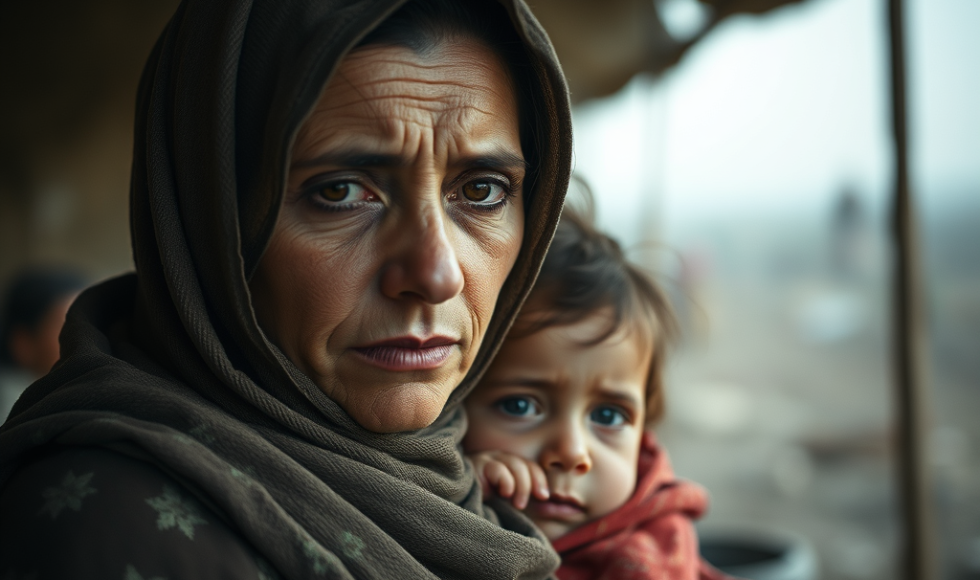Continued Detention of Yezidi Survivors of Islamic State Atrocities in North-East Syria
It has been ten years since the Islamic State’s (IS) genocidal attack on the Yezidi community in Iraq, recognized as such by the United Nations. Despite IS’s territorial defeat, the suffering of Yezidi survivors endures, with many believed to remain unlawfully detained in north-east Syria. These survivors are subjected to indefinite detention under the control of the Autonomous Administration of North and East Syria, supported by the US-led military coalition.
Since IS’s offensive began in August 2014, over 3,000 Yezidis have been killed, and at least 6,800, primarily women and children, have been abducted and subjected to grave violations, including sexual enslavement and forced recruitment of boys as child soldiers. A significant portion of the approximately 2,600 Yezidis still missing are presumed to be detained in facilities controlled by autonomous authorities in north-east Syria. These facilities, established to detain individuals with perceived IS affiliations, have been reported to hold large numbers of Yezidi survivors under dire, inhumane, and life-threatening conditions.
Testimonies from Yezidi rights organizations and repatriated Yezidi survivors indicate that fear and misinformation have hindered many detained Yezidis from identifying themselves and returning to their families. IS affiliates in detention camps such as Al-Hol continue to wield influence over captive Yezidis, many of whom are unaware of their heritage due to abduction at a young age. Additionally, hundreds of Yezidi women and children remain at Al-Hol camp, subjected to conditions that amount to cruel, inhuman, or degrading treatment in violation of international law.
Compounding the suffering, many Yezidi women have given birth to children as a result of sexual violence perpetrated by IS. These women fear separation from their children if they come forward as Yezidi, in contravention of international human rights standards, which prohibit forced separations.
Amnesty International and other humanitarian organizations have documented egregious human rights violations within the detention system. Survivors recount widespread torture, deaths from ill-treatment, and unsanitary conditions. Many detainees have died due to rampant disease and maltreatment in at least two facilities, and Yezidis continue to face fear of retaliation from fellow detainees should they disclose their identities. The lack of an organized identification process further exacerbates the challenge of securing their release.
Activists, including Abdullah Shrem, have worked tirelessly to identify and repatriate Yezidi survivors, yet their efforts are undermined by limited access to detention centers, lack of formalized engagement with the authorities, and insufficient international support. The international community, particularly the United States, United Kingdom, and UN bodies such as UNHCR, UNICEF, and UN Women, must urgently increase their support for efforts to identify and repatriate missing Yezidis in compliance with human rights law.
It is imperative that the Autonomous Administration of North and East Syria, in coordination with Iraqi authorities, ensures that Yezidi survivors, including those with children, are not only freed from detention but also provided with the necessary reparations, psychological support, and reintegration assistance. The Iraqi government must enhance its efforts under the Yazidi Survivors Law to provide justice and restitution for all returning survivors. Meanwhile, international bodies should consider expanding access to DNA testing to facilitate the identification of missing Yezidis abducted as children and ensure their safe return to their communities.
This ongoing tragedy demands immediate and sustained intervention from the global community to ensure the identification, liberation, and restoration of the rights and dignity of Yezidi survivors still held in captivity.
Ibraheem Jabr is a seasoned legal professional with extensive expertise in international law, human rights, and commercial legal support. Based in Eindhoven, Netherlands,Ibraheem is the Founder and Legal Counsel at Legal Bridge, where they provide expert legal advice to EU-based government agencies and law firms navigating the complex legal landscape of the Middle East and North Africa (MENA) region.



